Nine Key Commitments
In 2017, OACAS presented nine key commitments the child welfare sector have agreed upon to move forward with Reconciliation:
- Reduce the number of Indigenous children in care.
- Reduce the number of legal files involving Indigenous children and families.
- Increase the use of formal customary care agreements.
- Ensure Indigenous representation and involvement at the local Board of Directors.
- Implement mandatory Indigenous training for staff.
- Change the inter-agency protocol to include Jordan’s Principle as a fundamental principle
- In consultation with Indigenous communities, develop a unique agency-based plan to better address the needs of the children and families from those communities.
- Continue to develop relationships between their local agency and the local Indigenous communities.
- Assist those individuals wanting to see their historical files by accessing and providing the information they request.
The tracking of these commitments is being undertaken at both a local and provincial level.
More Information
More information regarding the nine commitments can be found here, and progress updates on the commitments can be found on page 11 of the OACAS 2021 Annual Report.
For OACAS members, the research that informed the nine commitments can be accessed through this link (Note: login to myOACAS required to access).
Child, Youth and Family Services Act
The Child, Youth and Family Services Act (CYFSA) and came into effect in 2018 and is the primary legislation governing child, youth and family services that are provided, funded or licensed by the Ministry of Children, Community and Social Services (Review of CYFSA). The main purpose of the act is to promote the best interests, protection, and well-being of children and youth. As such, "the legislation puts children and youth at the centre of decision-making, and supports more accountable, responsive and accessible child, youth and family services. It also strengthens oversight for Children’s Aid Societies and licensed residential services," (Child, Youth and Family Services Act (CYFSA) 101, [course in myOACAS Learning], 2017).
Part IV of the CYFSA focuses on First Nations, Inuit, and Métis Child and Family Services. It is acknowledged in the CYFSA that First Nations, Inuit and Métis people should be entitled to provide, wherever possible, their own child and family services (CYFSA Preamble). It is also recognized that FNIM children, young persons, and their families should be provided services that recognize their culture, heritages, traditions, and connections to their communities.
Six Points of Action and An Act respecting First Nations, Inuit, and Métis children, youth and families
Six Points of Action
In 2018, the Government of Canada developed the six points of action as a response to the severe over-representation of Indigenous children in the child welfare system. The six points of action are as follows:
- Continuing the work to fully implement all orders of the Canadian Human Rights Tribunal, and reforming child and family services including moving to a flexible funding model;
- Shifting the programming focus to prevention and early intervention;
- Supporting communities to draw down jurisdiction and explore the potential for co-developed federal child welfare legislation;
- Accelerating the work of trilateral and technical tables that are in place across the country;
- Supporting Inuit and Métis Nation leadership to advance culturally-appropriate reform; and
- Developing a data and reporting strategy with provinces, territories and Indigenous partners.
You can view the progress on the six points of action here.
An Act...
After much discussion with First Nations, Inuit and Métis partners, An Act respecting First Nations, Inuit and Métis children, youth and families (formerly Bill C-92 ) was co-developed and became law on June 21, 2019. The legislation came into effect on January 1, 2020.
The Act was developed and implemented as the "over-representation of First Nations, Inuit and Métis children in the child and family services system has been described as a humanitarian crisis; according to Census 2016 data, Indigenous children make up 7.7% of all children between the ages of 0 and 14 but account for 52.2% of children in foster care in private homes," (Government of Canada, 2019).
At the time, the approach to Indigenous child and family services often saw Indigenous children separated from their families and communities. As per this article developed by the Government of Canada, the Act is ultimately meant to reduce the number of Indigenous children in care; however, the act is also meant to:
- affirm the rights of First Nations, Inuit and Métis peoples to exercise jurisdiction over child and family services;
- establish national principles such as the best interests of the child, cultural continuity and substantive equality;
- contribute to the implementation of the United Nations Declaration on the Rights of Indigenous Peoples; and
- provide an opportunity for Indigenous peoples to choose their own solutions for their children and families.
You can access the Bill C-92 Compliance Guide for Social Workers and Service Providers for specific information on the Act and how it looks in practice.
Furthermore, you can find out what the act means for you through this fact sheet, as the implications of this legislation vary depending on identity.
More Information
For further information, you can visit this page which offers a high-level overview of critical areas of the act including a section by section description of the Act.
The Assembly of First Nations also created an overview of the Act for Chiefs and Leaders which can be accessed here, and this resource developed by Olthuis Kleer Townshend LLP offers more information on the process of creating the Act.
Implications for Social Work Practice: Frameworks, Reports, and Research
Note: you have to be authenticated by OACAS’s library databases to access any EBSCO articles. To learn how to be authenticated, you can visit the EBSCOHost research databases guide. If you are an OACAS member and are having difficulty accessing these articles, please reach out to Jessica Mariano, Content & Research Librarian (she/her).
Frameworks & Reports
- Children Back, Land Back: A Follow-Up Report of First Nations Youth In Care Advisors [2021]A follow-up to the Justice, Equity and Culture: The First-Ever YICC Gathering of First Nations Youth Advisors report. A simplified account of the report can be found in this fact sheet.
- The Other Side of the Door: A Practice Guide for Child Welfare Professionals Working with First Nations, Inuit and Métis Peoples [2014]Practice guide developed by OACAS and intended for child welfare professionals working with First Nations, Inuit and Métis families and communities
- Reconciliation Framework: "Sharing a Good Heart" [2013]A framework that provides some questions for consideration to support CASs in dialoguing about where they are in terms of their relationship with the Aboriginal/FNIM communities they work with.
General
- The Indigenous Child Removal System in Canada: An Examination of Legal Decision-making and Racial Bias [2016]An article advocating for the overhaul of the Indigenous child removal system, guided by the recommendations of the Truth and Reconciliation Commission's final report.
- Nistawatsiman: Rethinking Assessment of Aboriginal Parents for Child Welfare Following the Truth and Reconciliation Commission [2016]A paper outlining concerns about using assessment approaches based on the assumption that methods developed for the dominant culture can be applied to Aboriginal cultures.
- Community-Based Child Welfare for Aboriginal Children: Supporting Resilience through Structural Change [2005]A paper describing the contemporary lived experience of First Nations children, youth and families in Canada.
Theory-Based
- Indigenous Wholistic Theory: A Knowledge Set for Practice [2019]An article that explores Indigenous social work practice grounded in Indigenous wholistic theory, emphasizing its necessity as a foundational knowledge set.
- Culturally Restorative Child Welfare Practice - A Special Emphasis on Cultural Attachment Theory [2009]Research that examines culturally restorative child welfare practices supporting Anishinaabe children's cultural identity, advocating for advancing cultural attachment theory in academia and social work.
Kinship/Alternate Care
- Creating Places of Belonging: Expanding Notions of Permanency with Indigenous Youth in Care [2015]An article that draws on studies with urban and off-reserve Indigenous youth to compare Western care models with Indigenous practices like naming ceremonies, custom adoptions, and kinship care, highlighting cultural permanency.
- ‘It's a Family Responsibility’: Family and Cultural Connection for Aboriginal Children in Kinship Care [2014]Findings from a study on Indigenous kinship care, emphasizing the need to connect Indigenous children to family, community, and culture, with specific note on gaps in cultural support planning.
FNIM Non-Fiction Book Recommendations
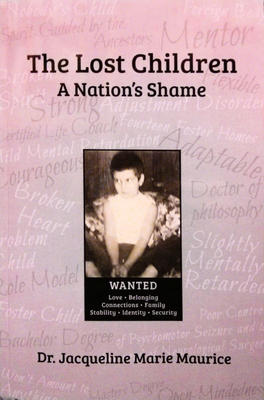
The Lost Children: A Nation's Shame
"This book highlights Dr. Maurice's riveting experiences of multiple traumas, foster homes, losses, oppressions and atrocities while in foster care, and her amazing process to becoming an educator, mentor and role model. This book has implications for and speaks to survivors, youth, parents and grandparents as well as community members, leaders, educators, professionals and decision makers. It also serves as a timely reminder that currently, thousands of children in North American and worldwide are directly or indirectly experiencing child welfare policies and practices which are tragically becoming known as a Millennium Scoop." - Summary submitted by author
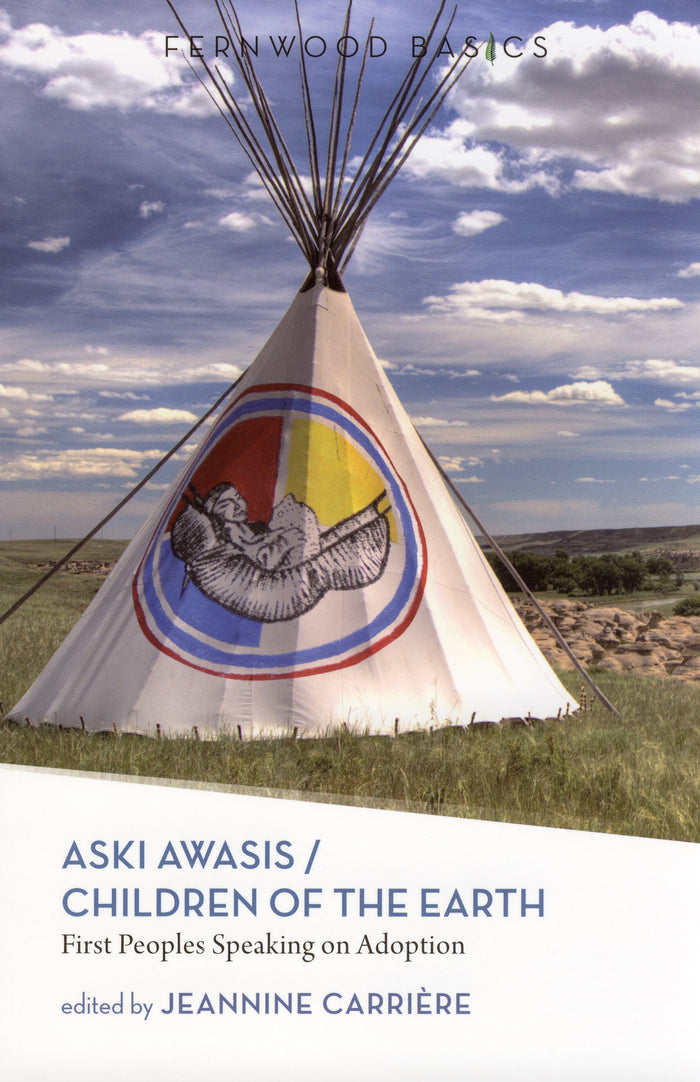
Aski Awasis/Children of the Earth: First Peoples Speaking on Adoption
"In an effort to decolonize adoption practices, the Yellowhead Tribal Services Agency (YTSA) in Alberta has integrated customary First Peoples’ adoption practices with provincial adoption laws and regulations. Introducing this unique agency, the authors outline the history of First Nations adoptions and, through an interview with a YTSA Elder, describe the adoption ceremonies offered at YTSA." - Summary taken from Good Minds
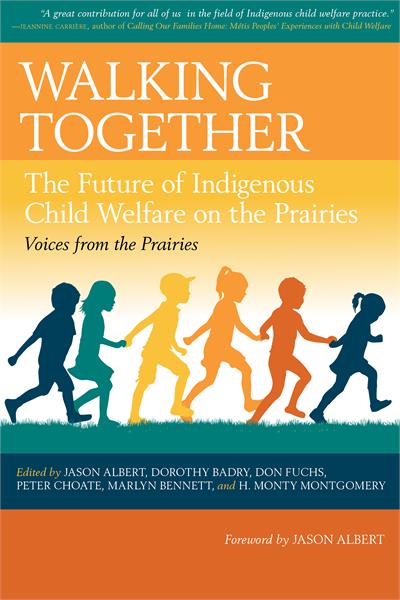
Walking Together: The Future of Indigenous Child Welfare on the Prairies
"Indigenous and non-Indigenous scholars forward child welfare issues currently impacting Indigenous children in Canada. Centering Indigenous knowledge and working to decolonize child welfare, contributors address the over-representation of Indigenous children in the child welfare system, the un-met recommendations of the TRC, the connections between colonialism and fetal alcohol spectrum disorders, the impact of Bill C-92, and more." - Summary taken from Good Minds
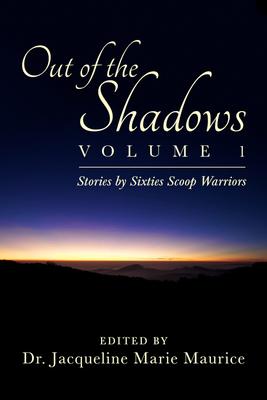
Out of the Shadows Volume 1: Stories by Sixties Scoop Warriors
"Edited by Dr. Maurice, this collection of Sixties Scoop Warrior stories and teachings is testimony to the power of coming out of the shadows and into the light. What will strike the audience most in reading through these heartfelt stories is the phenomenal resilience of the writers, how they not only survived so many traumas, but have come out the other side as such wise and compassionate people. Where one might expect bitterness, and anger, there are expressions of deep gratitude, humility, and forgiveness. Where one might expect blame, we hear from Warriors of the need to let go of resentment and to take personal responsibility for one's choices and one's life.
The release of this anthology is timely for individuals, who are beginning and/or continuing their healing journey, their search for a sense of place, belonging and identity and coming home. This book is also of benefit for tireless allies in healing who include family members, extended family members, spouses, close friends, loved ones and community members. The importance of this book is a devastating and stark reminder that currently, thousands of Indigenous and Métis children in North America and worldwide are directly and/or indirectly experiencing child welfare policies and practices which are tragically becoming known as the Millennium Scoop" Summary submitted by author

Out of the Shadows Volume 2: Stories by Sixties Scoop Warriors
"Out of the Shadows: Stories by Sixties Scoop Warriors, Volume Two chronicles the phenomenal resilience of Authors and how they survived so many traumas. Yet these Contributors emulate courage, compassion and wisdom. What will strike the audience is the Authors’ pain and suffering while witnessing their transformation into Warriors as each person finds their way out of a dark past.
This book is critical reading for all who want to understand the trauma to children and families when they are torn apart. It is also essential reading for individuals who are beginning and/or continuing their healing journey, their search for a sense of place, belonging and identity, coming home and, for allies in healing. This book is a devastating and stark reminder that currently, thousands of Indigenous and Métis children in North American and worldwide are experiencing child welfare policies and practices which are tragically known as a Millennium Scoop." - Summary submitted by author
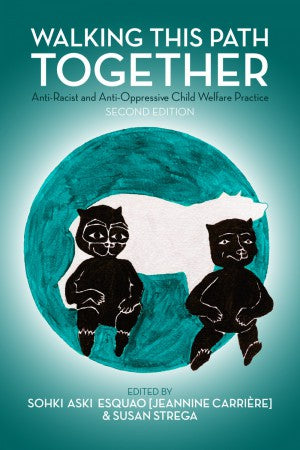
Walking This Path Together: Anti-Racist and Anti-Oppressive Child Welfare Practice, 2nd Edition
"Walking This Path Together is an edited collection devoted to improving the lives of children and families that come to the attention of child welfare authorities by demonstrating and advocating for socially just child welfare practices" - Summary taken by Good Minds

Overcome: Children Who Grew Up In The Child Welfare System
"Abandonment, loss, endless transitions, self-reliance, continued persistence, and fierce beauty all coexist in this compelling collection of stories of ten women who journey from victims of the child welfare system to survivors, and beyond. These women face endless challenges, oppression, and trauma but discover their power through creativity, self-awareness, education, motherhood, and extreme empathy.
They also illustrate the direct and multi-faceted relationships between residential schools, the breakdown of Indigenous families, the perpetuated system racism of of the child welfare system and oppression through other societal systems." - Summary taken from Good Minds